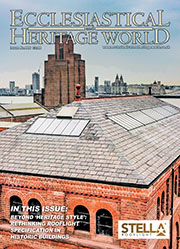Does your business require lightning protection?
 Here in the UK, we’re blessed with relatively calm weather. However, while we might not be subjected to hurricanes or tornadoes, we do get our fair share of electrical storms. On average, the UK and its surrounding waters are hit by around 300,000 lightning strikes every year, and while these powerful displays of nature are stunning to watch, they also pose significant risk to both people and structures.
Here in the UK, we’re blessed with relatively calm weather. However, while we might not be subjected to hurricanes or tornadoes, we do get our fair share of electrical storms. On average, the UK and its surrounding waters are hit by around 300,000 lightning strikes every year, and while these powerful displays of nature are stunning to watch, they also pose significant risk to both people and structures.
While the dangers of being struck by lightning are exceedingly low, buildings can be put at risk, which can also endanger those inside. With this in mind, you may be wondering what your responsibilities are when it comes to protecting your premises against the threat of a lightning strike. As lightning protection experts, Hertfordshire-based Rodell’s decided to demystify the process and give you the lowdown on what you need to do.
Complying with the law
As a country with a much lower risk of lightning strikes in comparison to other countries around the world, the UK doesn’t actually have laws specifying lightning protection all for buildings and structures. However, what it does have is a set of rules under the Electricity at Work Regulations 1989 that applies to businesses.
Specifically focusing on BS EN/IEC 62305, businesses are required to ensure that electrical installations and the business premises itself are protected from lightning strikes.
What is required?
Under the regulations, there are four ‘lightning protection levels’ known as LPLs. These LPLs focus on the protection of four different aspects of a business, ranging from S1 to S4. S1 focuses on protecting strikes to the structure itself, S2 for strikes near the structure, and S3 and S4 are focused more around services connected to the main structure, such as warehouses and parking spaces.
In order to remain compliant with BS EN/IEC 62305, a company must have an inspection carried out by a licenced professional and invest in lightning mitigation installations such as surge protection to keep your electronic equipment safe and lightning rods to ground your building.
What are the penalties?
As lightning protection falls under the Electricity at Work Regulations 1989, it is essential to ensure that you remain on the right side of the law. If you are found to be ignoring these regulations or if someone is injured due to your business not having adequate protection, you could find yourself in extremely hot legal hot water. With this in mind, it’s essential to make sure you’re compliant.
Protect your business from lightning strikes with Rodell’s
Lightning strikes are powerful yet dangerous displays of nature, which is why you should ensure your business is properly protected. As suppliers of quality lightning protection solutions, from lightning rods to comprehensive inspections, our team will ensure you’re compliant to regulations.
For more information, visit rodellscontracts.co.uk













